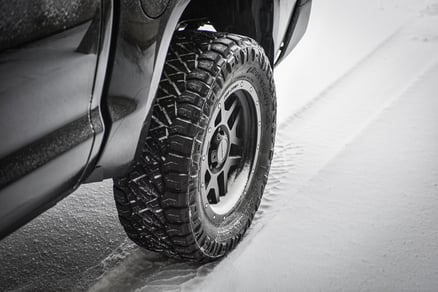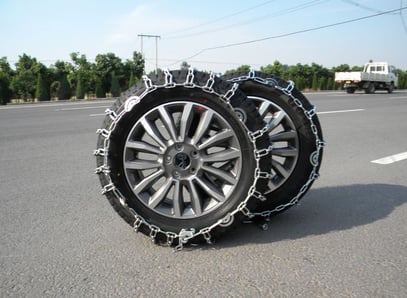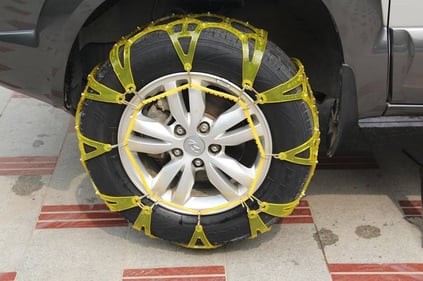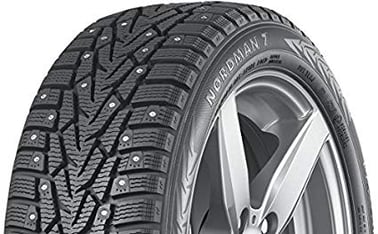According to a number of sources, November will continue to see a drop in temperatures, followed by freezing conditions, and heavy snow is forecast for December and January.
If you manage a fleet, you would do well to prepare for adverse winter weather. Even if there are no specific Irish or UK road traffic regulations mandating or prohibiting the use of snow tyres, snow chains, snow socks or studded tyres (we only experience a relatively low annual snowfall) for safe driving you should consider the possibility of extreme and how your fleet will cope.
If your fleet travels to other European countries you may want to check their respective winter-driving regulations regarding tyres. In terms of the law, most of the time, normal tyres that meet local regulations will be fine for winter trips to other countries, but you should still consider the safety of your drivers in unfavourable conditions.
In Italy, the law equates the use of chains to that of winter tyres. In Scandinavia, Estonia, Latvia and Lithuania winter tyres are required by law. Germany and Austria set specific rules: in Germany vehicles not equipped with adequate tyres cannot be operated and winter tyres are mandatory from November to April (the same applies to some areas of Northern Italy and is likely in other countries where ski resorts exist).
Most tyres used in Ireland and the UK are classified as summer tyres. This does not necessarily mean they are to be used only in summer, but it is a way to distinguish them from winter tyres, which are commonly used in countries that experience regular and significant snowfall during winter.
Depending on your driving needs, you, as a driver, may require winter tyres, snow chains, snow socks or studded tyres.
Winter tyres

There is no regulation on winter tyres in Ireland or the UK but we recommend, if you wish to use them, to install a full set of four so as not to unduly affect steering. Once the possibility of snow is gone for the season you can simply reinstall your summer tyres.
Snow chains

Snow chains provide significantly increased traction and have to be wrapped around the wheel.
They have to be used in adverse weather, but will not break under normal conditions. However you should not drive for long periods on asphalt with snow chains or cables, as this will shorten the life of the chains and may damage the surface of the road (which is prohibited under Irish law for example).
Make sure your snow chains are of the appropriate size and follow manufacturer’s recommendations for installing them; ensure they are fixed on the correct wheels.
Snow socks

Photo Credit: rsa.ie
Snow socks are textile covers that fit over the tyres. They have been popular during recent sporadic winter conditions as they are reusable and easy to fit.
Make sure you apply them correctly and they are of an adequate size for your vehicle's tyres. Do not drive for long periods with snow socks fitted as they won’t last long.
Studded tyres
Photo Credit: Kantor.JH - Wikipedia.de
Tyres may have studs installed for additional traction on icy roads. Studs create added friction for the tyre and roughen up the ice.
Make sure to double-check road regulations before using them; in Ireland studs should only be used on packed ice or snow, as their direct use on the road surface would cause damage and for that reason are prohibited.




